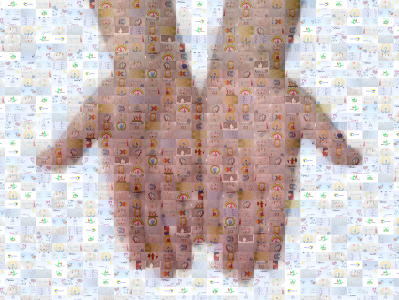Caregivers are individuals who provide psychological, emotional, physical and financial support to their loved one...
Caregivers are individuals who provide psychological, emotional, physical and financial support to their loved one (1). Family caregivers provide substantial support over the course of critical illness and recovery, which can place them under substantial psychological and physical stress (1). They experience anxiety, depression, post-traumatic stress symptoms that can affect the quality of care they provide and are associated with poor physical health and psychological morbidities (2-5).
Their support should be initiated when the patient is in ICU and should continue, if needed, when the patient goes to the ward, a rehabilitation center or at home. In the ICU, support is provided when caregivers are informed and actively involved in decision making, receive emotional and physical comfort and have questions answered honestly (6). As research shows, the medical team is advised to provide honest and clear information to enable them to understand their family member's illness and treatment options (6), feel confident about the decisions they make and thus reduce the experienced stress and sleep disturbances (7).
In addition, caregivers should be encouraged that first and foremost they should take a good care of themselves and not neglect their own health because ignoring their own physical and mental health can negatively impact both them and the person they are caring for. They should be encouraged to eat well, to get good rest as much as possible and seek support if required. If needed, they should be referred to the hospital's Social Workers or Psychologists for support.
What caregivers should know:
1. Caregiving can trigger different emotions. Anxiety and worry on how to handle the additional responsibilities and what the future holds. Anger or resentment towards the person they are caring for or resentful towards other friends and family members who do not have the same responsibilities. Guild for not being a better caregiver or having more patience and grief for the loss of the healthy future they planned with their loved one or of their on freedom or of the relationship they once had with the person they are caring for.
In this case encourage the person to discuss their emotions to deal with them. It should be emphasized to avoid bottling up their emotions and find a trusted person to talk about them.
2. They should not attempt to be Super Caregivers and should ask family and friends for support. Initially they need to have clear understanding of their family member's needs, determine the tasks required, highlight the tasks they are able to complete, and then request help for the remaining.
Emphasize to the caregiver that is important to recognize the limits of their own endurance and strength and to realize that they don't have to it all by themselves. They should inform family members and friends that they can't do it all without their help (National Caregiver Foundation, 2009). If they don't request assistance they will quickly burn out and this will negatively influence their care and their physical and mental health. They will be less effective caregivers in the long run if they cannot admit their own limitations and play to their strengths.
3. They should attend their own needs and not feel guilty when going for a walk, going for a coffee with a friend or exercising. When they are physically and mentally healthy then their care is better too.
Accentuate that their emotional, physical, social and recreational needs are equally important as are their loved one's needs. Finding time to relax, nurture their close relationships, eat right, sleep well and exercise are important behaviors reinforcing balanced psychological and physical health.
References
1. Choi, JY., Sherwood, PR., Schulz,, R., Ren, D., Donahoe, MP., Given, B. & Hoffman, L.A. (2012). Patterns of depressive symptoms in caregivers of mechanically ventilated critically ill adults from ICU admission to two months post-ICU discharge: A Pilot Study. Crit Ca Med, 40(5), 1546 -1553.
2. Davidson JE, Jones C, Bienvenu OJ. Family response to critical illness: Postintensive care syndrome-family. Crit Care Med. 2012; 40:000–000. Epub 2011 Nov 15.
3. Gries CJ, Engelberg RA, Kross EK, et al. Predictors of symptoms of posttraumatic stress and depression in family members after patient death in the ICU. Chest. 2009; 137(2):280 - 287.
4. Pochard F, Darmon M, Fassier T, et al. Symptoms of anxiety and depression in family members of intensive care unit patients before discharge or death. A prospective multicenter study. J Crit Care. 2005; 20(1):90–96
5. McAdam JL, Dracup KA, White DB, Fontaine DK, Puntillo KA. Symptom experiences of family members of intensive care unit patients at high risk for dying. Crit Care Med. 2010; 38(4):1078 -1085.
6. Davidson, JE., Powers, K., Hedayat, KM., Tieszen, M., Kon, AA., Shepard, E., Spuhler, V., Todres, D., Levy, M., Barr, J., Ghandi, R., Hirsch, G., Armstrong, D. (2007). Clinical practice guidelines for support of the family in the patient-centered intensive care unit: American College of Critical Care Medicine Task Force 2004 - 2005. Crit Ca Med, 35(2), 605-622.
7. Day, A., Haj-Bakri, S., Lubchansky, S. and Mehta, s. (2013). Sleep, anxiety and fatigue in family members of patients admitted to the intensive care unit: a questionnaire study. Critical Care, 17 : R91.



